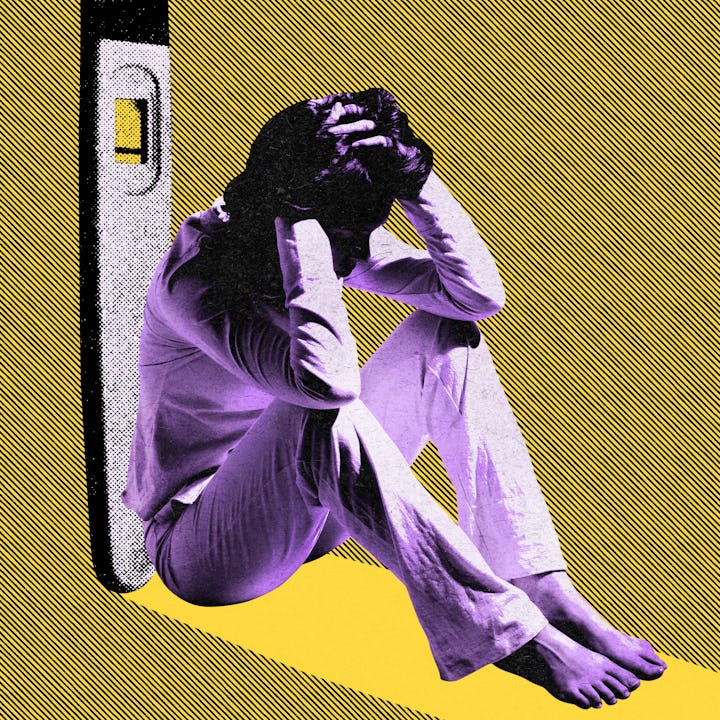Infertility Is Not Your Fault
This Mother’s Day, a reminder: You are not the ‘culprit’ of your own body.

For those who have struggled to have a child, Mother’s Day can be complicated.
It can be an opportunity to celebrate the joy of parenthood, and share gratitude for the mothers and mother figures in all of our lives. It can be hard if you’ve lost your mother or mother figure. It can also be a reminder of the painful, frustrating, and sometimes dangerous journey that far too many women undergo in an effort to become mothers themselves.
In the United States, about one in five women struggle to get pregnant, and millions more have trouble seeing a pregnancy to term. For a variety of reasons — from a lack of quality and affordable prenatal care, to a range of understudied genetic conditions, to complications from chemotherapy and radiation, to other unknowns — millions of people across the country face heartbreaking obstacles on their journey to parenthood.
My husband and I are no exception. When we first started trying to get pregnant in August 2021, we weren’t having any luck, and soon, I started rapidly gaining weight. I figured it was my body adjusting to being off birth control, and tried to put it out of my mind altogether.
The following March, after months of trying, we finally had a positive pregnancy test. We were overjoyed.
But the unbridled happiness didn’t last long. The next day, I went to the doctor to get bloodwork done, and it came back negative.
A voicemail from my doctor’s office confirmed I was not pregnant and that I should contact a doctor to discuss my infertility. Up until then, I hadn’t even known I was experiencing infertility at all. I was crushed and confused, and to make matters worse, I couldn’t get a hold of a physician to explain my results in more detail. The feelings of inadequacy, failure, and isolation were overwhelming. Though I knew on a rational level that the struggle to get pregnant wasn’t my fault, on an emotional level, it was hard to fight the sense that something was wrong with me — that I was flawed because I couldn’t do what seemingly should be the most natural thing for my body to do.
And it turns out, there was more to the story. When I finally did receive a call back from my doctor, she told me that since my husband had already had a child, he obviously wasn’t “the culprit.” The implication being: I was. As if infertility were a crime, as if I was intentionally committing it.
Words can’t describe how dehumanizing and demoralizing it was to hear that from a medical professional when what I wanted more than anything in the world was to be happily, healthily pregnant.
And yet, I know that I am far from alone: Too many women have received a similar voicemail, or even heard a similar message from friends and family.
Whether we struggle with infertility, suffer a devastating miscarriage, or choose to have an abortion, women are constantly being blamed for our own reproductive journeys by people who seek to control or demonize our basic biology. The very same people who call some women “culprits” for experiencing painful challenges getting pregnant would force others to carry an unwanted or dangerous pregnancy to term, cut off access to abortion pills, and criminalize our right to basic reproductive care. Either way, they want us to think it’s our fault.
Well, this Mother’s Day, all women that have struggled with infertility should remember that it's not our fault. We didn’t do anything wrong. In my case, I finally got connected to a brilliant fertility doctor who diagnosed PCOS with me. PCOS is a hormone imbalance that is far too common for women across the country and causes infertility, weight gain, and fatigue. Finally, I had answers — and soon after, hope.
As I look forward to welcoming our own daughter into the world this summer, I want every woman reading this to know that you are not less than if your journey to motherhood takes longer, has twists and turns along the way — including fertility struggles, miscarriages, or abortions — or doesn’t happen at all, by choice or by chance. Not every story is a straight line with a happy ending, but it doesn’t make any woman less worthy or any family less full.
The experiences of pregnancy and motherhood have made me even more committed to the sacred values of choice, independence, and bodily autonomy.
Thanks to support from my husband, affordable and comprehensive healthcare access, and our wonderful community, motherhood is a choice I’m finally able to make. It’s a choice that should happen on a woman’s own timeline, whether biological, financial, or otherwise. It’s a choice that we should talk about openly and honestly, to end the shame and isolation that too many women are forced to shoulder.
Because no matter what you choose, or how you get there, you are not a culprit.
Sydney Barron Gallego is a government affairs specialist and step-mom to a rambunctious six year-old, Michael. She is married to Congressman Ruben Gallego and expecting a baby girl to join their family in July.
This article was originally published on